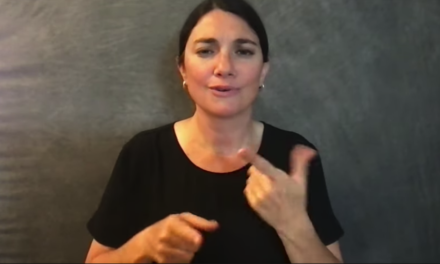The Consumer and Governmental Affairs Bureau [CGB] under the Federal Communication Commission [FCC] previously released an Order (on October 30, 2019) to extend the VRS at-home call pilot program through April 30, 2020, or the effective date of an FCC decision regarding at-home call handling, whichever occurs first.
We are able to confirm that, as of April 30, 2019, only two providers (ZVRS and Purple) were participating in the pilot program, and we are working on an update of this status. The Order stated that Sorenson, GlobalVRS, and Convo were allowed to participate in the program as extended.
The pilot program requires compliance with the FCC’s mandatory minimum standards and also specific safeguards adopted for the pilot program. Under the pilot program, authorized VRS providers may be compensated for calls handled by communication assistants from at-home workstations for up to a maximum of 30 percent of each provider’s total call minutes. This was part of an effort to reduce “waste, fraud, and abuse to ensure adherence to telecommunications relay services standards on call confidentiality and service quality” (FCC – Order).
Individuals approached Deaf Vee Journal and requested an investigation into the claim that some VRS providers were recording calls for “quality assurance” purposes due to the “At-Home Call Handling Pilot Program”. Also found in the Order is the requirement of participating providers to comply with monitoring and oversight obligations, including the submission of reports. This is one of the possibilities why some community members were led to believe that their calls could be recorded.
Deaf Vee Journal contacted Convo Relay, Purple/ZVRS, Sorenson and GlobalVRS for further clarification about their individual policies on how they currently comply with the monitoring and oversight obligations, with or without recording phone calls of interpreters who work at home under their pilot program.
Convo Relay does not currently participate in the pilot program; however, they did make it very clear they do not and will not be recording any phone calls in the below statement:
“Regarding VRS interpreters working from home, the FCC has granted permission for us (alongside a couple of other VRS providers) to participate in their At Home VRS program. Convo is currently evaluating the program, but have yet to determine if it is a good fit for Convo, or our consumers. As for recording calls, Convo does not and will not record any calls.”
Karina Pedersen – Convo Relay Marketing Manager (in an e-mail to Deaf Vee Journal)
At this time, Purple/ZVRS. Sorenson and GlobalVRS have not gotten back to Deaf Vee Journal.
We also have contacted Michael Scott from the Disability Rights Office, a section of the CGB under the FCC, to inquire further about the FCC’s expectations on compliance in terms of confidentiality and whether FCC authorizes VRS providers to record calls.
Link to April 30, 2019 Order in PDF.
For further information or inquiry about FCC policies and procedures in terms of TRS [telecommunication relay services], you can contact Michael Scott, Disability Rights Office, CGB, at 202-418-1264 or Michael.Scott@fcc.gov. Individuals who use videophones and are fluent in American Sign Language [ASL] may call the FCC’s ASL Consumer Support Line at 844-432-2275 (videophone). TTY users may call the FCC’s TTY number at 888-835-5322.
Video Relay Services [VRS] is a relay service that the FCC made possible on March 6, 2000, through the Improved TRS Order, which amended the rules governing the delivery of TRS with an expansion on the type of services available to consumers.
Tomorrow (on 01/30/2020) the FCC is having a vote on the decision to permanently permit VRS providers to allow communication assistants to handle at home workstations; however, at this time the FCC does not have any rules that allow for the recording of phone calls. Stay tuned for an update from Deaf Vee Journal.






Nice design out there!
Just wanted to say that some big business do record their voice calls for customer quality assurance initiative.
Prisons do record video calls for their own purposes.
So how is that different?